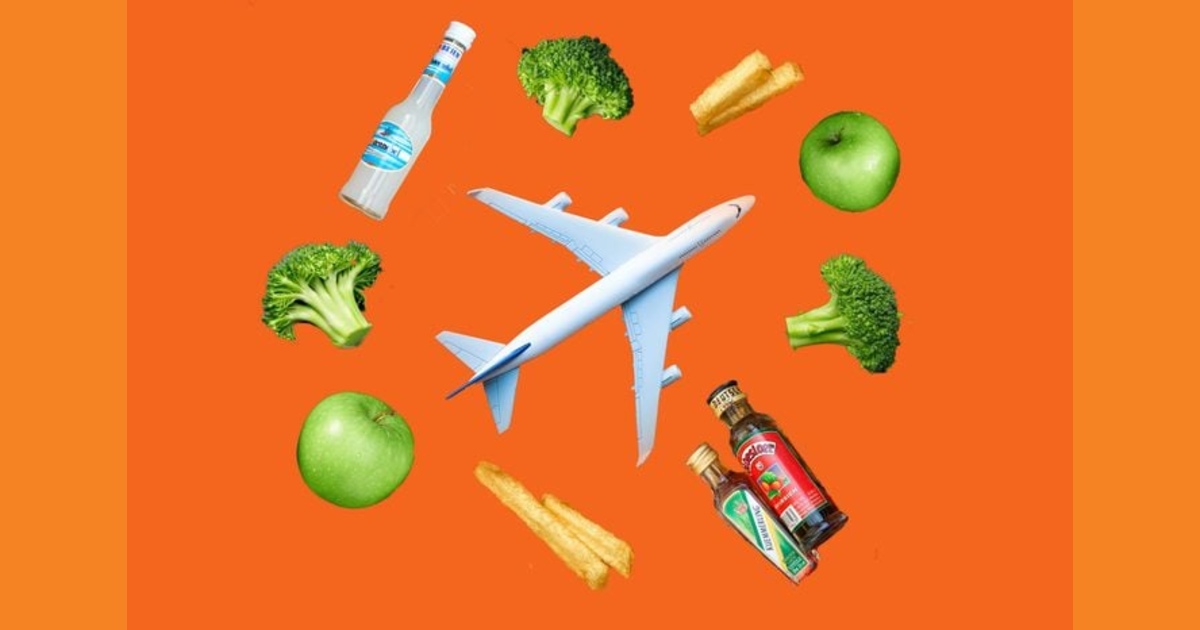Prepare for your next flight with expert guidance from nutritionist Ryan Davidson. Discover the five foods to avoid before flying to ensure a smooth and comfortable journey ahead.
In the following discussion, we’ll unveil the five foods and beverages you should jettison from your pre-flight menu. From coffee’s dehydrating effects to the unexpected consequences of chewing gum in the cabin, Davidson’s insights will help you make informed choices and ensure a smooth, comfortable journey to your destination. Buckle up for a healthier and more enjoyable flight!
5 Foods to Avoid Before Flying
1. Coffee
The siren call of Starbucks at the airport beckons many bleary-eyed travelers, but heed this cautionary advice: leave that venti pumpkin spice latte behind. Coffee may seem like an ally in the battle against fatigue, but it’s a stealthy dehydrator and mild diuretic.
Sip your java too close to boarding, and you’ll find yourself on an inconvenient, bathroom-bound journey, inconveniencing fellow passengers. Give coffee the boot at least two hours before takeoff to avoid this caffeinated conundrum.
2. Alcohol
A stiff drink may calm pre-flight jitters, but Davidson’s counsel advocates for temperance in the air. The lofty cabin pressure and reduced blood oxygen levels alter your body’s alcohol metabolism, intensifying its effects.
This sky-high intoxication can lead to missed connections, rebuffed car rentals, or even air rage-induced arrests. To keep your journey smooth, skip the in-flight libations.
3. Tap Water
While water is the elixir of life, be discerning about its source during your journey. Opt for bottled water over in-flight tap options. Despite rigorous airline regulations and water quality checks, contamination risks persist. Stored in onboard tanks, water can collect impurities at various points on its journey.
To avoid potential health woes like diarrhea, vomiting, or respiratory issues, make bottled water your trusted hydration companion.
4. Apples
An apple a day may keep the doctor away, but it won’t keep discomfort at bay when you’re cruising at altitude. Surprisingly, this seemingly wholesome snack can be a saboteur of your in-flight comfort.
Apples, rich in fructose and fiber, can trigger gas and bloating, making your journey far less pleasant. Save your apple a day for another time and opt for a gentler pre-flight snack.
5. Chewing Gum
Chewing gum is the age-old remedy for combating ear-popping cabin pressure, but a word of caution from Davidson: this seemingly innocuous habit may have unintended consequences.
The cabin’s pressurization increases the likelihood of unceremonious gas-passing, an embarrassing side effect. While gum may still be your go-to ear-popper, be mindful of this potential in-flight faux pas.
In summary, when embarking on your next airborne adventure, remember to part ways with these five culinary culprits.
Bid adieu to coffee, alcohol, tap water, apples, and even chewing gum before boarding. Your journey will be smoother, more comfortable, and free from the dietary pitfalls that often accompany air travel. Bon voyage!








Leave a Reply
You must be logged in to post a comment.